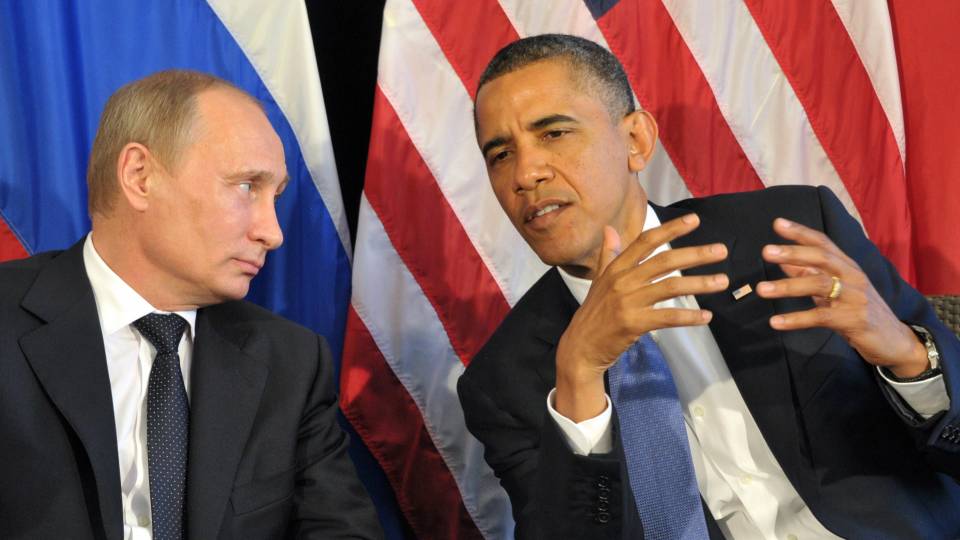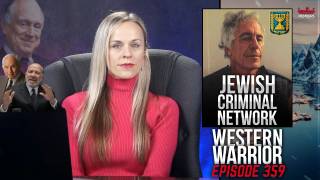Cold War 2.0: How Russia and the West Reheated a Historic Struggle
Gen Sir Richard Shirreff remembers the moment he realised Nato was facing a new and more dangerous Russia. It was 19 March 2014, the day after Russia annexed Crimea from Ukraine.
Shirreff, then deputy supreme allied commander Europe, was at Nato’s military HQ in Mons, Belgium, when an American two-star general came in with the transcript of Putin’s speech justifying the annexation. “He briefed us and said: ‘I think this just might be a paradigm-shifting speech’, and I think he might have been right,” Shirreff recalled.
The Russian president’s address aired a long list of grievances, with the west’s attempts to contain Russia in the 18th to 20th centuries right at the top.
Putin said: “They have lied to us many times, made decisions behind our backs, placed us before an accomplished fact. This happened with Nato’s expansion to the east, as well as the deployment of military infrastructure at our borders.”
He warned that Russia would no longer tolerate such pressure: “If you press the spring it will release at some point. That is something you should remember.”
Warnings of a return to cold war politics have been a staple of European debate for three years, but in recent weeks many western diplomats, politicians and analysts have come to believe the spring has indeed been released. Russia is being reassessed across western capitals. The talk is no longer of transition to a liberal democracy, but regression.
The post-cold war era is over, and a new era has begun. Cold war 2.0, different in character, but potentially as menacing and founded not just on competing interests but competing values.
The French foreign minister, Jean-Marc Ayrault, said: “The reality is that behind the appearance of consensus … a form of world disorder took hold. We are now paying the price for that error of assessment that gave westerners a feeling of comfort for two decades”.
In the UK, the foreign secretary, Boris Johnson, said in his party conference speech that the west had been mistaken in its belief that “the fall of the Berlin Wall meant the world had come to a moment of ideological resolution after seven frozen and sometimes terrifying decades of communist totalitarian rule”.
Others such as Sir John Sawers, the former head of MI6, warned: “We are moving into an era that is as dangerous, if not more dangerous, as the cold war because we do not have that focus on a strategic relationship between Moscow and Washington.” But unlike the cold war, there are now “no clear rules of the road” between the two countries.
The German foreign minister, Frank-Walter Steinmeier, an advocate of dialogue, made the same point: “It’s a fallacy to think that this is like the cold war. The current times are different and more dangerous.”
The reasons for all this anxiety are not hard to find. The accumulation of recent Russian provocations is daunting. The hybrid frozen war in Ukraine and the bombardment of Aleppo in Syria, revealing a determination to keep Bashar al-Assad in power, top the list.
Add to that Putin’s sudden scrapping of a 20-year-old US-Russian agreement to reprocess excess plutonium to prevent its use in nuclear weapons. He also deployed short-range, nuclear-capable Iskander-M missiles in Kaliningrad, the Russian enclave in eastern Europe, unnerving Nato members Poland and Lithuania. He moved advanced S-300 and S-400 ground-to-air missiles, and radar into Syria in a sign that he now regards the country as his preserve, and can see off any plan for a Turkish or American no-fly zone. In a display of military reach he dispatched the Admiral Kuznetsov aircraft carrier, and its taskforce, to the waters off Syria so its SU-30s and MiG-29 aircrafts can drop yet more bombs on Syria.
He even raised the spectre of the Cuban missile crisis by saying he was considering reopening military bases in Cuba and Vietnam, a move calculated to unnerve US public opinion. At the same time, Putin is trying to challenge western diplomatic alliances – notably with Turkey, Egypt, China and Libya.
All the while he experiments with new techniques – the unprecedented use of cyber warfare, including the hacking of Democratic politicians’ emails, and wider use of information wars to destabilise the Baltics or fund parties of the right in eastern Europe. The only common factor, apart from the aggression, is his unpredictability, adding to Putin’s self-image as a master of political intrigue.






















